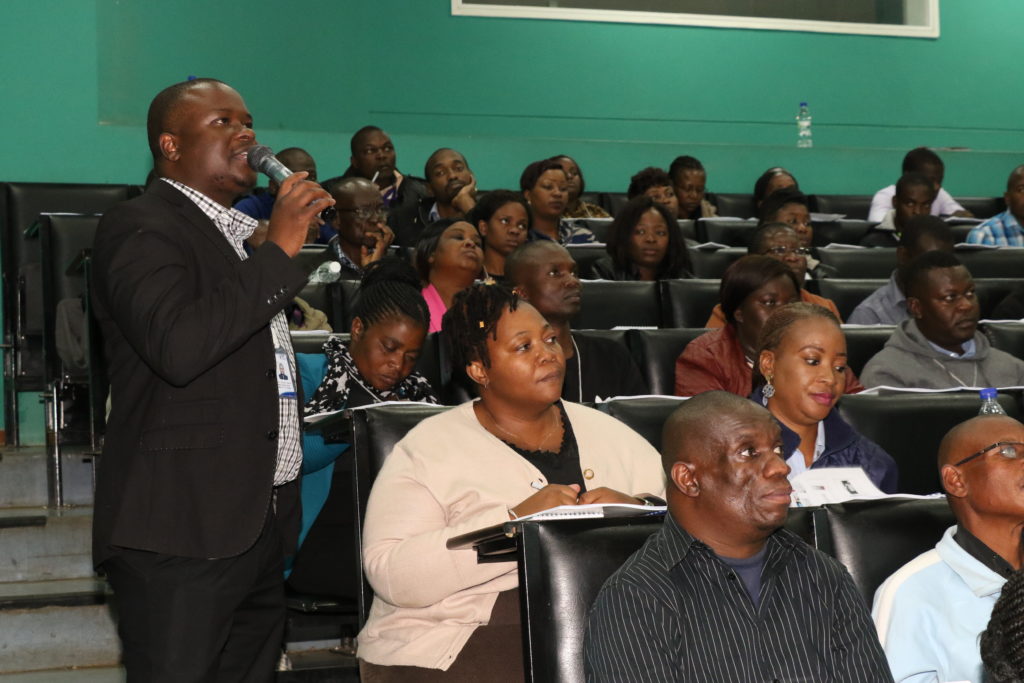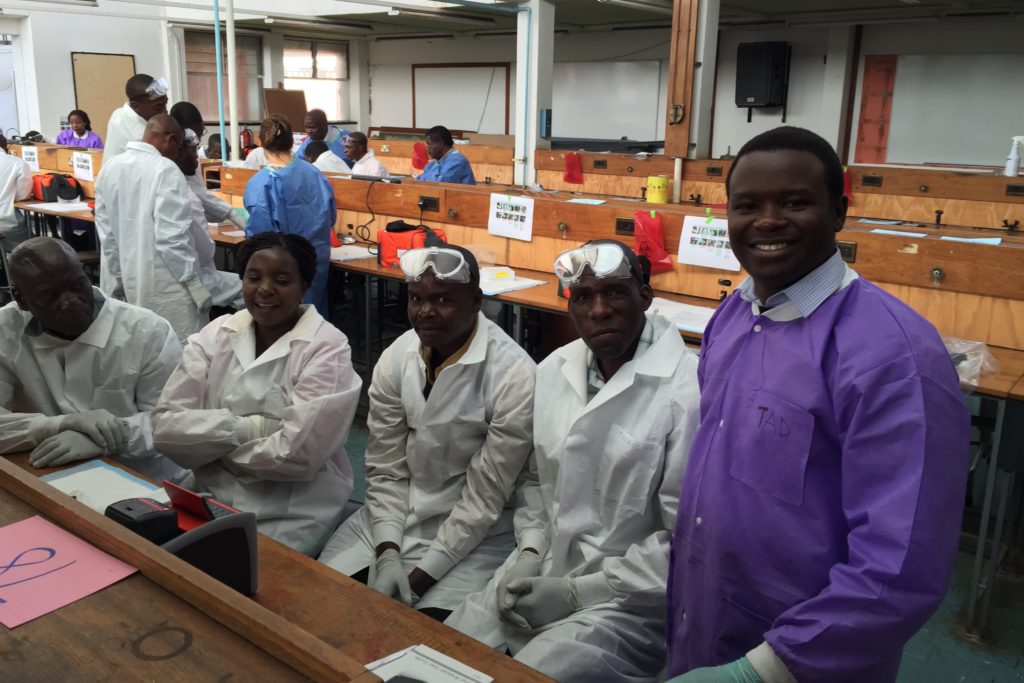When Tafadzwa Dzinamarira, PhD, was a child growing up in Zimbabwe, he dreamt of being an educator, just like his mother and father. Yet, after a life-changing moment, this dream took another turn.
“My dream career changed when someone I was very close to passed away of Organophosphate poisoning. According to doctors, it could have been treated if it were diagnosed. Investigating further, as a young boy, I found out that the provincial hospital did not have the capacity to perform a pseudocholinesterase test,” said Dzinamarira. “That’s when I started thinking ‘I need to be able to do this’ and started leaning towards laboratory medicine.”

In 2015, Dzinamarira joined ICAP’s Population-based Impact Assessment (PHIA) project team as the satellite lab scientist for Zimbabwe’s PHIA (ZIMPHIA) survey. His first role was to receive and process samples from the field and provide indirect supervision to field testers performing phlebotomy and rapid testing during PHIA household survey visits. Soon enough, Dzinamarira’s initial aspiration of being a teacher came to fruition as he transitioned to a senior lab advisor role for the Namibia PHIA (NAMPHIA) survey.
One of Dzinamarira’s proudest career moments came when he was working to provide technical leadership in the design, development, planning, and implementation of laboratory components for NAMPHIA. An important component of this role was capacity building, which involved mentoring a team of over 35 laboratory scientists and technicians, many of whom were older than Dzinamarira.
“These colleagues are now leaders in the medical laboratory field, some here at ICAP and some with the African Society for Laboratory Medicine. Each time I interact with them, they express their gratitude for the positive impact I have had in their lives and I am humbled and very proud,” said Dzinamarira. “I think a key component of laboratory strengthening is staff training: if you train someone who ends up being a trainer themselves, that’s what our dynamic profession is about.”
Laboratories play a critical role in the health field as they lead in diagnosis, the entry point for nearly all diseases to be identified, assessed, and treated. In the context of HIV, Dzinamarira’s focus area, laboratories are necessary across the treatment cascade: in getting tested and linked to care. They also provide testing for more sophisticated cases, such as HIV viral load and transmitted drug resistance testing. In each step of HIV care, the laboratory is essential.

The PHIA project, specifically, continues to share population-based, bio-marker data which includes a wide number of laboratory tests that effectively communicates the HIV prevalence, incidence, and viral load suppression in a country. Having this information, Dzinamarira asserts, informs, and allows stakeholders and policymakers to tailor interventions to help disrupt the transmission of the disease.
As the PHIA Regional Laboratory Advisor, Dzinamarira provides technical expertise and guidance to laboratory advisors across all PHIA implementing countries including Haiti, Zimbabwe, Lesotho, Malawi, Uganda, Eswatini, and Mozambique. Due to the COVID-19 pandemic, increased safety measures have been taken to observe social distancing guidelines for each survey. For example, there are now fewer staff working in a mobile laboratory and there are multiple shift systems so that no one team is strained or overwhelmed. Strategies are being implemented to create ‘work bubbles’ where smaller groups of laboratory staff are working with one another as well as various additional trainings to reinforce the importance of personal protective equipment (PPE) and observing social distancing guidelines.
Reflecting on the ongoing impact of the COVID-19 pandemic, Dzinamarira fears that populations are nearing the pandemic fatigue stage and, due to the emotional and socioeconomic challenges of the pandemic, are demotivated to follow recommended behaviors that will protect them and others from the virus. On the other hand, he is hopeful that widespread vaccinations will allow countries to lift strict restrictions. Still, the availability of vaccines in many countries remains unclear.
“Here in Africa, widespread vaccination is not immediately on the horizon so testing will remain integral to identify individuals who are infected, isolating, and quarantining from COVID-19 infection or exposure,” says Dzinamarira. “Our laboratories have to be heavily involved in the control of the epidemic including enhancing capacity building and expanding testing in limited resources.”
He urges young health professionals to learn from the COVID-19 pandemic and remain motivated to serve their communities.
“ICAP has taught me that no matter what cadre you are – be it a nurse in the frontline with direct contact to patients or a laboratory technician working behind a wall in a temperature-controlled room – we all have a lot to contribute to the world,” said Dzinamarira. “If the COVID-19 pandemic has reminded us of anything, it is that as health professionals our primary goal is to save lives and provide service to our communities. The health sciences field is very dynamic and we must continue to work collaboratively and give it our all.”
About ICAP
A major global health organization that has been improving public health in countries around the world for nearly two decades, ICAP works to transform the health of populations through innovation, science, and global collaboration. Based at Columbia Mailman School of Public Health, ICAP has projects in more than 30 countries, working side-by-side with ministries of health and local governmental, non-governmental, academic, and community partners to confront some of the world’s greatest health challenges. Through evidence-informed programs, meaningful research, tailored technical assistance, effective training and education programs, and rigorous surveillance to measure and evaluate the impact of public health interventions, ICAP aims to realize a global vision of healthy people, empowered communities, and thriving societies.
About PHIA
Since 2014, the Population-based HIV Impact Assessment (PHIA) Project has conducted nationally representative surveys to capture the state of the HIV epidemic in the most-affected countries. This effort is led by the Ministry of Health in each participating country and funded by the U.S. President’s Emergency Plan for AIDS Relief (PEPFAR) through the U.S. Centers for Disease Control and Prevention (CDC) with technical support from ICAP at Columbia University. The PHIA Project embraces strong and effective partnerships to change the course of the HIV epidemic. For more information on the Population-based HIV Impact Assessment Project, visit the PHIA website.








